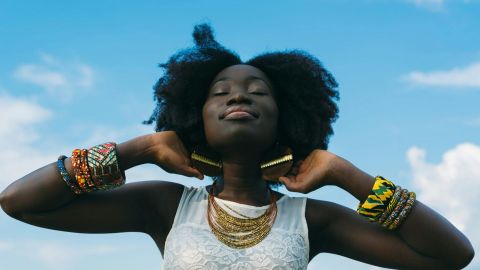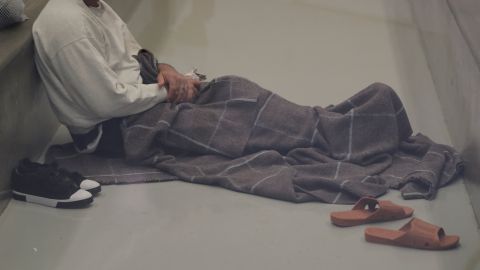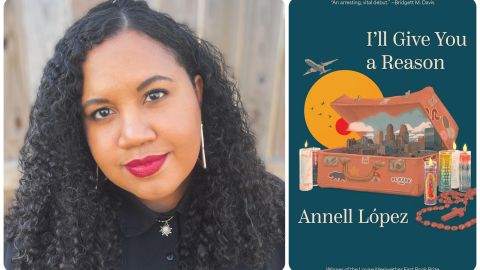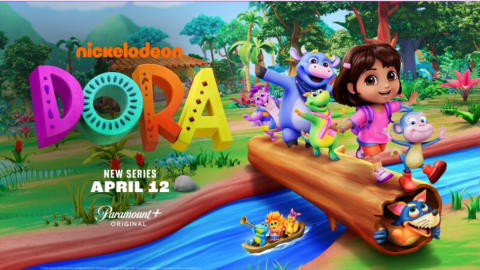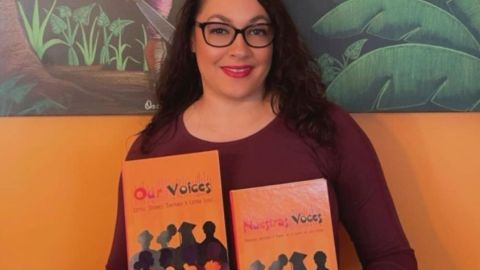What Surviving R. Kelly Revealed About Many Men in Hollywood
A poised, yet slightly flushed, young starlet stood before two reporters and a gaggle of national television news cameras playing with her fingers

Source: Instagram.com/@bellabharris
A poised, yet slightly flushed, young starlet stood before two reporters and a gaggle of national television news cameras playing with her fingers. As plenty of noteworthy stars bustled behind her on the red carpet, the reporters specifically asked her about her relationship with one megastar in particular.
“Oh, I love him,” she spoke of her dear friend. “We just text each other the other day and he was like ‘I miss you so much.’”
The reporters paused, if only for a beat, before politely affirming her friendship as “so cool,” and asking her what kind of advice her friend and role model has provided.
“About boys — he helps me,” she said.
When asked about the specific boy related advice he offers, she responded without hesitation. “That stays in the text messages.”
The young starlet, in this scenario, was 14-year-old actress Mille Bobby Brown of Netflix’s Stranger Things. The friend she gushed about was none other than 32-year-old famed rapper Drake.

Source: Instagram.com/MillieBobbyBrown
As a society, we’ve long accepted that most relationships — and especially those that exist between two celebrities — are at best, worth celebrating, and at worst, none of our damn business. In our personal lives, the rules that we apply about meddling in other people’s friendships and relationships exist for the sake of creating healthy boundaries and remaining wrinkle-free. We sleep better knowing that who other people choose to spend their time building with does not affect us nor is it worth turning around in our minds.
Minding one’s business has come close to godliness in recent years, perhaps, thanks to an oversharing and overly voyeuristic society enabled by social media. We have grown accustomed to constantly watching and assessing other people’s lives, and we know more now than we ever did about the intricacies of their relationships. Sharing how much you text — and even the content of those text messages — with certain friends has become viable content for an Instagram Story, Facebook post, or at least, a screenshot and forward.
We all watch, and we even privately speculate. But how often do we question private relationships and behaviors that have become public when they’re glaringly inappropriate?
Many would argue our shaming culture has that covered, particularly when it comes to potentially predatory relationships between older celebrity men and young women.
No less than a few minutes into the first night of Lifetime’s Surviving R.Kelly documentary series, many viewers collectively groaned, cringed, and cheered as the longtime predator was outed for decades of sexual abuse towards underage girls and young women. The exposure of his relationships with these women felt cathartic for many (with the exception of a few, who somehow felt emboldened in their support for him); demons were exorcized and truth prevailed in the name of never allowing this to happen to women in our society again.
But, are we letting it happen again? Many began to point out our hypocrisies as the documentary set off a resounding theme: “everyone overlooked the abuse when it was happening.”
The names of several powerful celebrity men popped up on my newsfeed, and read off like a list of ‘People We Love Too Much To Say Anything About.’ There were men who we currently celebrate, men who we’ve immortalized as perfect angles, men who we consider the most admirable in their industry.
The most shared example came from author Eve Ewing, who tweeted an incendiary thread capturing revelations about Drake’s relationships with underaged women.
https://twitter.com/eveewing/status/1081047385227386881
Presumably, any outrage about Drake’s behavior and interest in pursuing friendships with girls who are over a decade younger than him gets tempered in light of various other storied Hollywood romances. There is a precedent for older men courting young women. There is also a precedent for our broader culture ignoring, or sometimes, celebrating and romanticizing it.
Surviving R.Kelly highlighted the age difference between Elvis Presley and his bride, Priscilla Presley who was just 14-years-old when the 24-year-old legend met her. And many people bristled when Kylie Jenner and Tyga got together, but primarily for their tangled web of a family tree and less than the fact that they met when she was 14 and he was 22.
Other notable public relationships that started between older men and barely teenaged girls include Celine Dion and her late husband René Angélil (she was just 12 when they met to his 38 years of age), the late Paul Walker and his girlfriend, Jasmine Pilchard-Gosnell (with whom he started a sexual relationship when he was 33 and she was just 16), Kimora Lee Simmons and Russel Simmons (he was 35 when he met the 17-year-old model), and more.
In a world where everyone from Courtney Stodden to Sofia Richie to Milly Bobby Brown gleefully flaunts friendships, relationships, and sometimes marriages to much older men — and where these older men consider themselves far beyond reproach and certainly undeserving of innuendos of pedophilia — are we in a position to call these relationships into question? And, do we dare to take action against these men?
Them: "If we throw away R. Kelly, we have to throw away em' all."
Me: pic.twitter.com/rgZx9aWcTO— Jenn M. Jackson, PhD (they/them) (@JennMJacksonPhD) January 4, 2019
Taking inventory of every relationship between an older, powerful man and an impressionable, possibly underage girl feels daunting and triggering. But, in the carnage of the #MeToo movement and revelatory documentaries like Surviving R.Kelly we may need to begin to choose differently as a society. In response to those who continue to support predatory behavior (like those who contributed to Kelly’s 16% boost in streams since the documentary aired), it’s time to take a closer look at any situation where there’s smoke. Many times there will be fire.
And while every situation certainly may not be predatory, now more than ever, we should dive deep into a dialogue about what we’ve normalized as “quirky romances” instead of expressing fleeting, half-hearted concern. We should lean into the stories that are being shared about new friendships and romances that have formed. We should think critically about the realities young women are revealing (whether they’re telling their stories in girlish giggles or scared and worried eyes). And we should be intentional about what we consider acceptable instead of stumbling around what we will allow.
As the rules are being re-written and revised in the era of #MeToo, the time for simply “minding our own business” is officially up.










